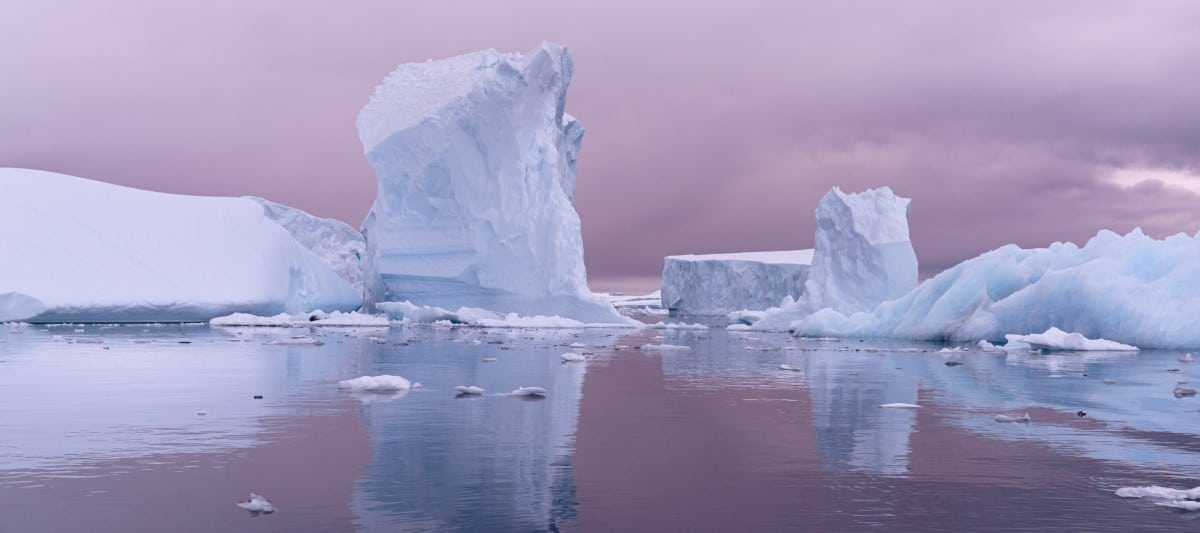
Set against the backdrop of a dusted pink sky, the icebergs almost glowed with an eerie luminescence. Glacial structures like these form and break away from Antarctica’s sprawling ice shelf, drifting out from their fortresses into the water like sentinels scouting the open ocean. In the pastel shimmer of dusk, the world seemed perfectly still. But I knew deep beneath these icy giants was a symphony of frozen crystals forming and shattering; the silent call of the polar South.
Conservation photographer Cristina Mittermeier has dedicated her career to the protection of the natural world. Specifically, she is passionate about the state of our world’s oceans, and through SeaLegacy, a non-profit she founded with her partner Paul Nicklen, she helps shine a spotlight on environmental issues through visual storytelling.
In a recent Facebook Story, Mittermeier called on world leaders to step up to the plight that Antarctica is facing. This fragile ecosystem is at a critical point due to numerous factors that include climate change, overfishing, and deep-sea mining. Tackling the issue head-on, Mittermeier uses her creative skills as a photographer to remind the public of what is at stake.
We had a chance to speak with Mittermeier on the heels of the annual CCAMLR (Convention on the Conservation of Antarctic Marine Living Resources) to discuss the victories and challenges that the area faces. Read on for My Modern Met’s exclusive interview and prepare to get inspired to effect change.
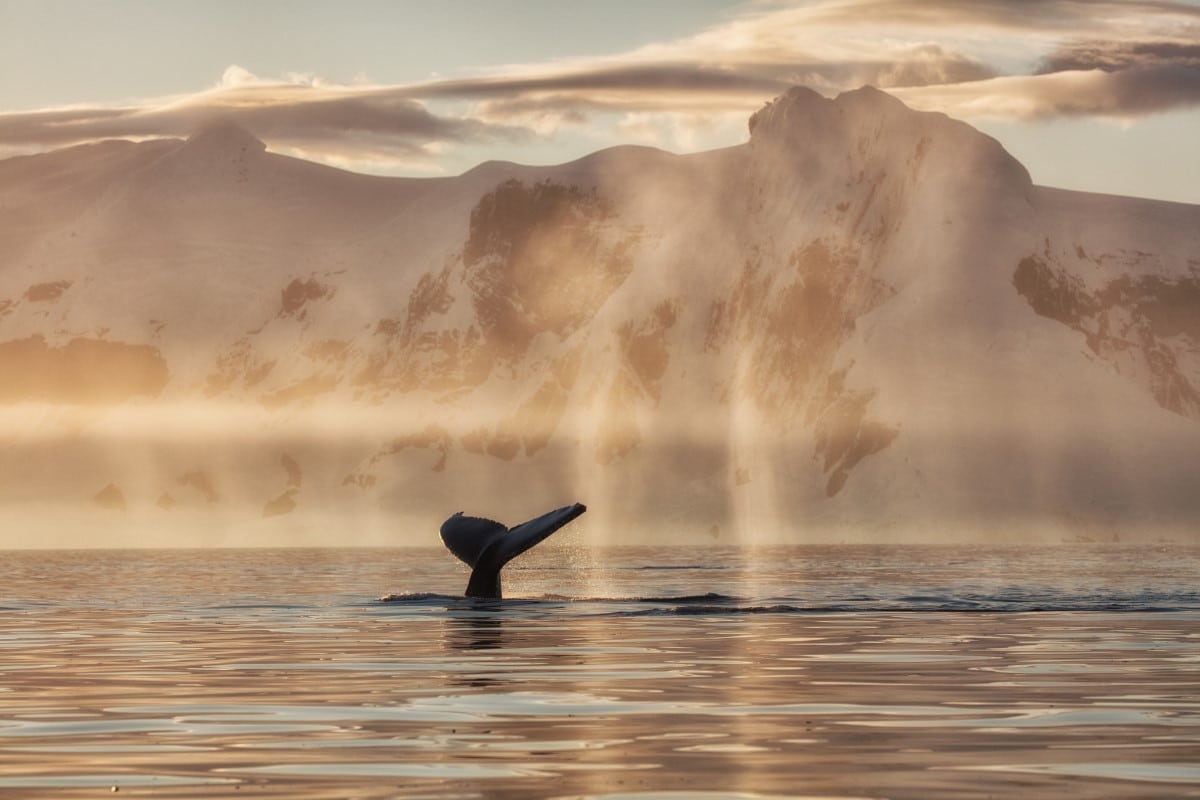
The evening sun catches the misty haze lingering over the glassy, icy waters of the Antarctic Peninsula. A humpback whale graces us ever so briefly with her presence before diving deep back under the dark sea.
What have been the biggest successes and challenges for ocean conservation in 2023?
There have been a number of wins so far this year, including the fact that many countries, including Canada and the UK, have placed a moratorium on Deep Sea Mining. Just like the wholesale liquidation of natural resources of land has had devastating effects on biodiversity and climate, the pursuit of mining assets at the bottom of the sea is a shortsighted, colonial proposal that will result in the further devastation of our oceans and our planet.
Knowing that countries are taking a serious look at understanding the ecology of the deep sea before any consideration is given to a mining proposal is a great step in the right direction.
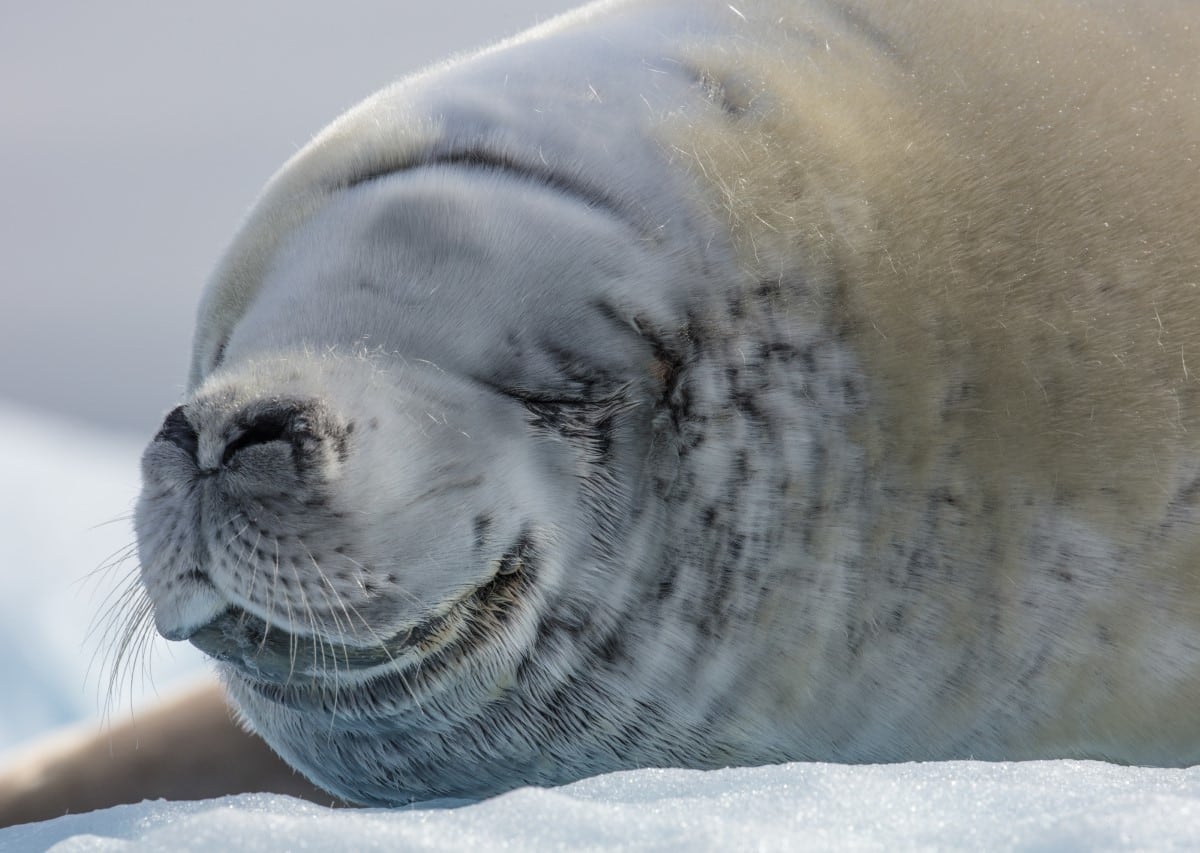
Crabeater seal
We see a lot of imagery about Antarctica and the melting glaciers, rising water tables, etcetera. What are the biggest changes you’ve seen there in your latest trip?
The changes that are easy to see are the dislodging of enormous blocks of ice from the continental shelf. These icebergs will eventually melt completely and add a large amount of freshwater to the ocean ecosystem, which will contribute to changing currents and rising sea levels. In addition, the weather patterns have changed from ice and snow to rain, which makes the survival of young animals, like baby penguins, much harder.
The international body in charge of creating additional protections for the Southern Ocean, known as CCAMLR (Convention on the Conservation of Antarctic Marine Living Resources), has met several years in a row, and they have failed to develop an agreement to protect this fragile ecosystem, which is a real tragedy.
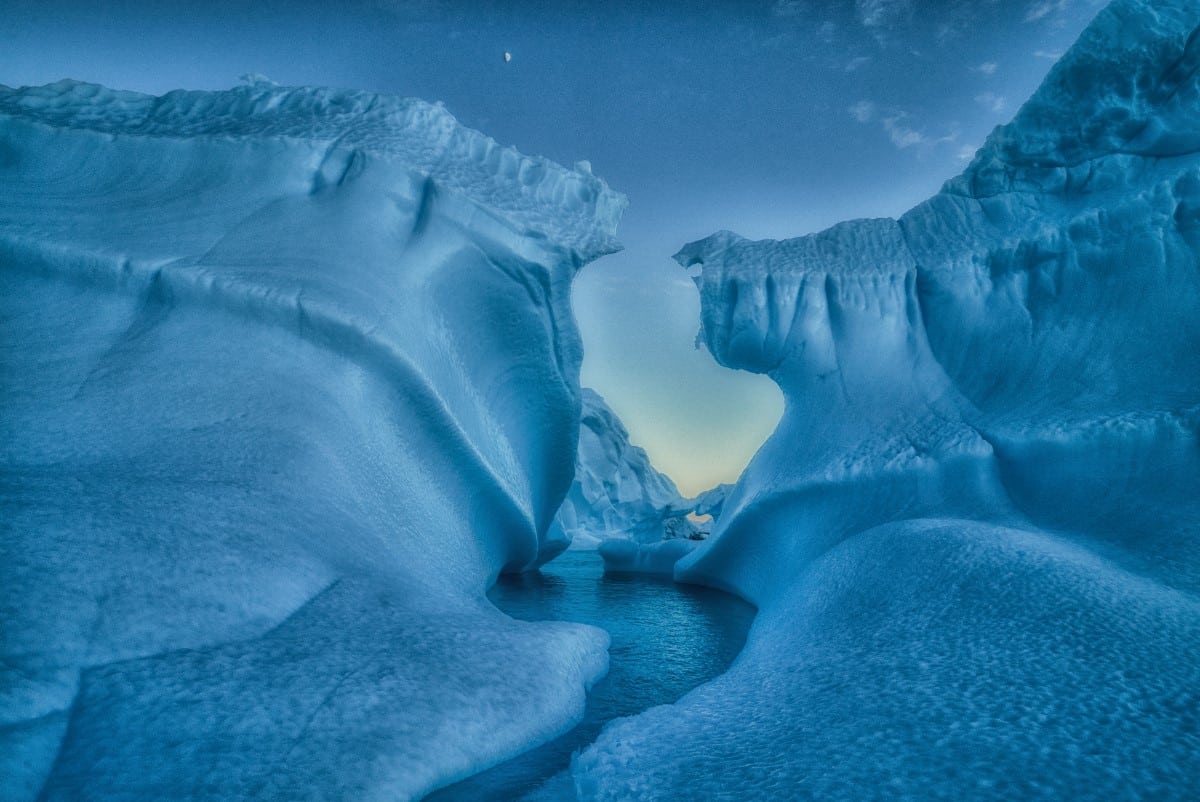
Nature is the greatest architect. This is just one the many examples of the stunning configurations of ice and water to be found across the southern continents’ oceans. As the ocean heats up we risk losing these beautiful and critical creations of nature.
It’s still sometimes difficult for individuals to see how they can effect change to reverse the climate trend. What do you recommend to those people who feel like they can’t make a difference on their own?
Nobody is making a difference on their own. It is important to understand that for every naysayer, there are 1,000 people making strides to have a positive impact. From reducing the amount of meat we consume to traveling less to becoming less materialistic, shifting to greener energy, and being more invested in reducing waste, the collective effect is massive. We all need to do more, and we all need to donate more to environmental efforts. Environment and climate remain the most underfunded causes in the United States.
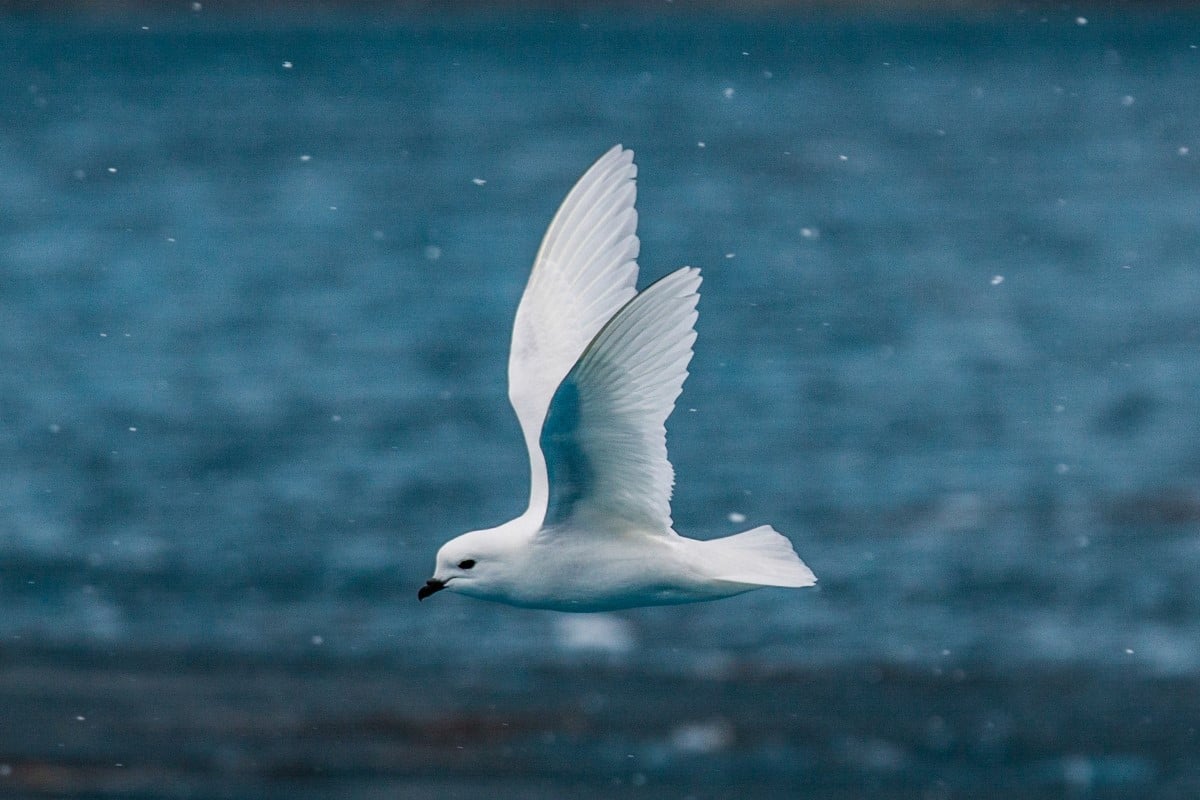
A Snow Petrel (Pagodroma nivea)glides through the snowy skies of the Drygalski Fjord in Antarctica. These graceful birds rely on the sea ice for hunting and rest while on the open sea.
CCAMLR 2023 just wrapped up. What are your biggest takeaways from what happened there?
I am baffled that a country like Russia, which is in the middle of an illegal war, would be allowed to have a voice in the decision to not protect the Southern Ocean. Still, in the end, conservation happens by consensus, and even though every other member country of CCAMLR elected to enact protections, the single voice of a rogue Russia negated the effort. Tragic, really.
What’s on your list creatively and as an activist for the new year?
I am working on my first Masters of Photography course, and I have been busy creating new work and editing old work for both that course and my upcoming exhibition at Galleria D’Italia.
